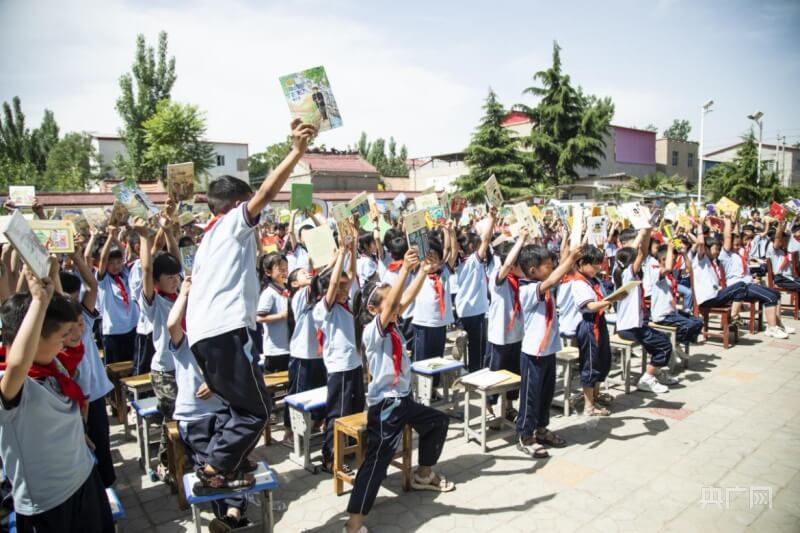
World Book Day changes lives through a love of books and shared reading. Our mission is to promote reading for pleasure, offering every child and young person the opportunity to have a book of their own.
Reading for pleasure is the single biggest indicator of a child’s future success – more than their family circumstances, their parents’ educational background or their income. We want to see more children, particularly those from disadvantaged backgrounds, with a life-long habit of reading for pleasure and the improved life chances this brings them.
World Book Day was created by UNESCO on 23rd April 1995 as a worldwide celebration of books and reading. It is marked in over 100 countries around the globe.
The first World Book Day in the UK and Ireland took place in 1997 to encourage young people to discover the pleasure of reading.
As World Book Day founder, Baroness Gail Rebuck, recalls “We wanted to do something to reposition reading and our message is the same today as it was then – that reading is fun, relevant, accessible, exciting, and has the power to transform lives.”
Spending just 10 minutes a day reading and sharing stories with children can make a crucial difference to their future success and it’s fun for all involved.

Since 2014, China’s “National Reading” has been included in the government work report for nine consecutive times, and has received widespread attention and response from all walks of life. During the two sessions this year, many representatives pointed out that the lack of reading resources is still a dilemma faced by many rural primary and secondary schools. When urban teenagers enjoy well-equipped public libraries, most rural teenagers generally lack extracurricular reading books, basically do not engage in reading activities, and their cognition of “reading” is limited to taking exams.
The history of young people’s mental development is their reading history. Reading not only affects the learning and life of young people, but also profoundly affects their cultural literacy, scientific enlightenment and future growth trajectory. Therefore, creating favorable conditions for young people to read good books and cultivating good reading habits for young people are not only the most effective means to strengthen the rural humanistic education environment, but also the most effective way to serve young people with the least investment and the best effect.
